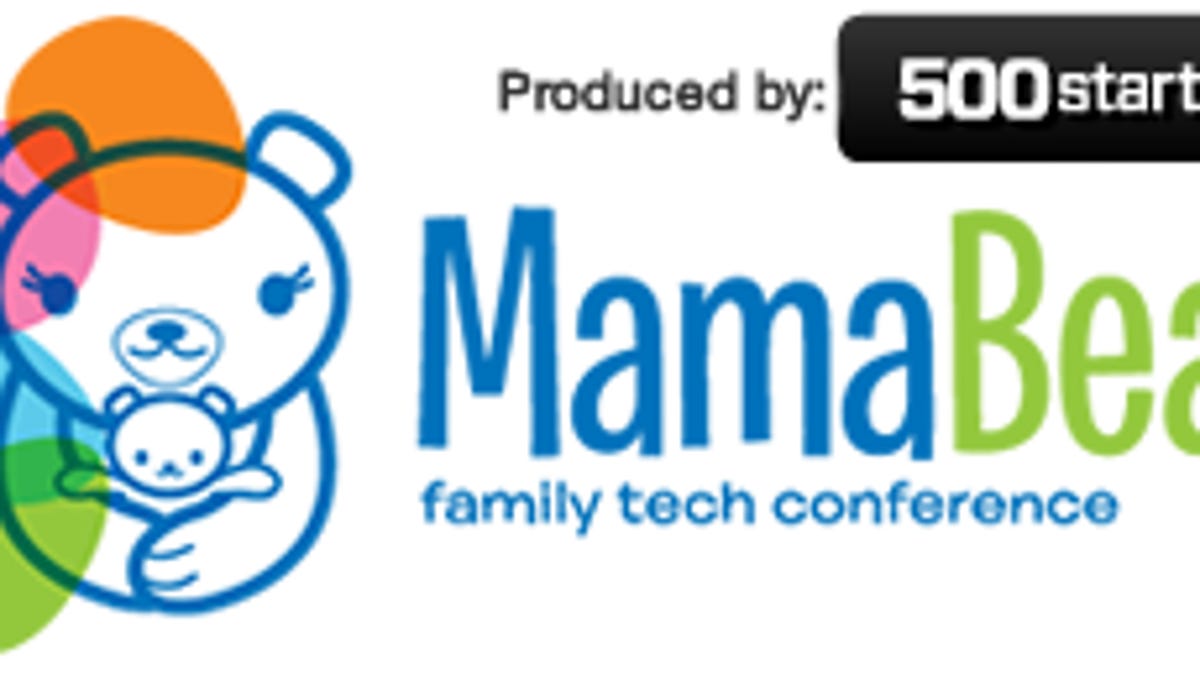Mama Bear conference sees money in moms
500 Startups is gathering entrepreneurs and investors together for a one-day conference to explore opportunities for "mommy companies."

"Too many single white kids are getting funded," 500 Startups founder Dave McClure says. "We're missing a big f---ing market."
McClure is kicking off the MamaBear Family Tech Conference today in Mountain View, Calif., to attack that market. At the same time, he wants angel investing to open up. It's overrun by men, he says.
"There's no lack of female founders anymore," according to McClure. He says that about 20 percent of his portfolio companies are run by women. Many are addressing family markets, he says. There are also a number of female venture capitalists. But angel investors? Not so much.
There's a lot of business to pick off. Jody Sherman, CEO of the online family products store Ecomom, notes that "Women make up 85 percent of spending that goes on in the home. Even most of the personal care items for men are bought by women." Sherman says his business will grow about 5x this year; it was founded in 2009.
In the children's educational space, also mostly controlled by moms, the advent of the iPad has opened up a new market. "It was a gift," Tadami CEO Kate Connally says. Connally is creating a platform for kids' games on video-enabled tablets. Again, she's eyeing a huge market. "The number of kids under 15 who will have access to a mobile device with a camera is estimated to be 1 billion by 2015," she says. "And for kids under 10, the thinking is they will never play games on a PC. Kids are the vanguard for touch-based computing."
Addressing the market for products that appeal to family decision makers -- moms -- is different than it is for single people and young adults, Connally says. For these games, "It's not about mechanics. It's about expressing yourself in an engaging way. A guy may not understand this at the same visceral level."
But Sherman says that it was difficult to find women to invest in his company, even though it "was a natural." Part of that is because there are far fewer women in venture capital, hardly any women-led VC firms, and a dearth of women angel investors funding very early stage companies. McClure wants to change this last fact.
"Male investors are underfunding this segment," he says. "I want to challenge more female angel investors to step up."
While people familiar with "mommy companies" may disagree that good businesses targeting this market are not getting funding, women are underrepresented as funders. Especially as angel investors.
One woman venture capitalist, Jodi Jahic of Aligned Partners, said the problem can be traced back to the education girls get.
To be a successful tech investor, Jahic says, you need both rigorous technology and business experience. But "a lot of girls opt out of science and engineering by the eighth grade. You can't decide to become an engineer at 30." Jahic says that "Silicon Valley is about as egalitarian as any place on the planet. [The lack of women] is not for lack of opportunity. It's the pipeline."
She adds, "If we are serious about getting more women in angel investing, we need to invest heavily in STEM (science, technology, engineering, and math) programs so there's a pipeline for the future."
The pipeline is, at least, not completely empty. Female engineers and execs emerging with stock wealth from companies like Facebook could change the tenor of angel investing in Silicon Valley. While McClure says "there are very few female role models" for women angel investors, he's hopeful that women will enter the angel investing space.
"I'm tired of calling the same investors," he says.

